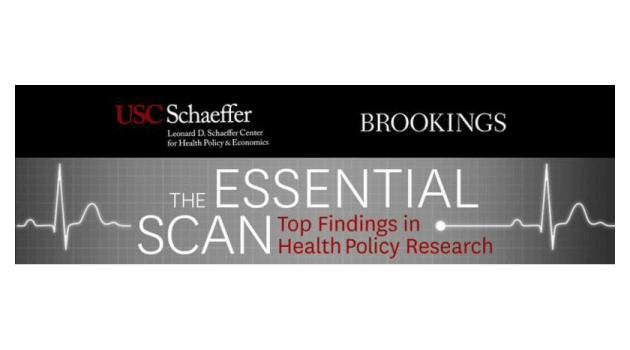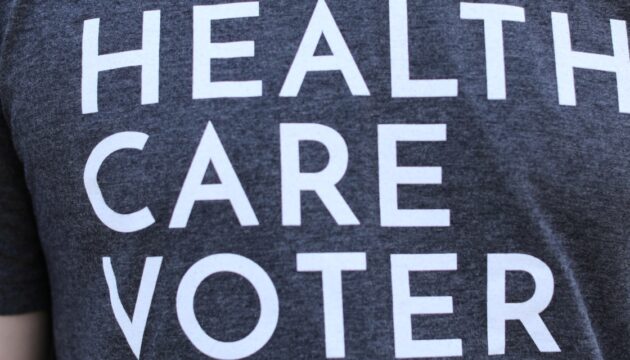Brookings Schaeffer on Health Policy
More from Brookings Schaeffer on Health Policy Blog
-
The Essential Scan: Top Findings in Health Policy Research | Edition 77
What’s the latest in health policy research? The Essential Scan, produced by the Schaeffer Initiative for Health Policy, aims to help keep you informed on the latest research and what it means for policymakers.
Categorized in -
The Essential Scan: Top Findings in Health Policy Research | Edition 76
What’s the latest in health policy research? The Essential Scan, produced by the Schaeffer Initiative for Health Policy, aims to help keep you informed on the latest research and what it means for policymakers.
Categorized in -
Remanding Texas v. U.S. to the Lower Court Prolongs Harms to Consumers and the Health Care Industry
How will remanding Texas v. U.S. case to the lower court will affect the health care market? Drug manufacturers face tremendous scientific uncertainty while ACA funding has clearly become a major component in state spending.
-
The Essential Scan: Top Findings in Health Policy Research | Edition 75
What’s the latest in health policy research? The Essential Scan, produced by the Schaeffer Initiative for Health Policy, aims to help keep you informed on the latest research and what it means for policymakers.
Categorized in -
The Essential Scan: Top Findings in Health Policy Research | Edition 74
What’s the latest in health policy research? The Essential Scan, produced by the Schaeffer Initiative for Health Policy, aims to help keep you informed on the latest research and what it means for policymakers.
Categorized in -
Provider Charges Relative to Medicare Rates, 2012-2017
Researchers examined data on charges for providers treating Medicare patients and compared them to Medicare’s set payment rate across specialties. They found specialties possessing the ability to surprise bill out-of-network patients higher charges relative to Medicare rates than other specialties.
-
PODCAST: The Biggest Health Care Issues of the 2020 Election
In this episode of the Brookings Cafeteria podcast, health policy experts from the USC-Brookings Schaeffer Initiative discuss the presidential candidates’ health proposals, and also look at what to do about surprise medical billing.
-
Experience with New York’s Arbitration Process for Surprise Out-of-Network Bills
Using data from the New York Department of Financial Services (DFS), USC-Brooking Schaeffer Initiative Associate Director Loren Adler found that the state’s arbitration process is substantially increasing what New Yorkers pay for health care.
-
Retroactive Enrollment: A Feasible Way to Bring Auto-Enrollment to the Individual Market
Half of the U.S. population living without health insurance are eligible for coverage through Medicaid or are eligible to receive financial assistance to buy coverage. “Retroactive” enrollment may offer a politically feasible way to automatically enroll people in health coverage.
-
Retroactive Enrollment: A Feasible Way to Bring Auto-Enrollment to the Individual Market
Helping people benefit from the programs for which they are eligible could have a significant impact on the share of Americans with health coverage, possibly making the idea of automatic enrollment into coverage attractive across the political spectrum.
Categorized in






